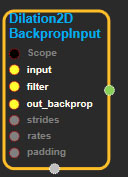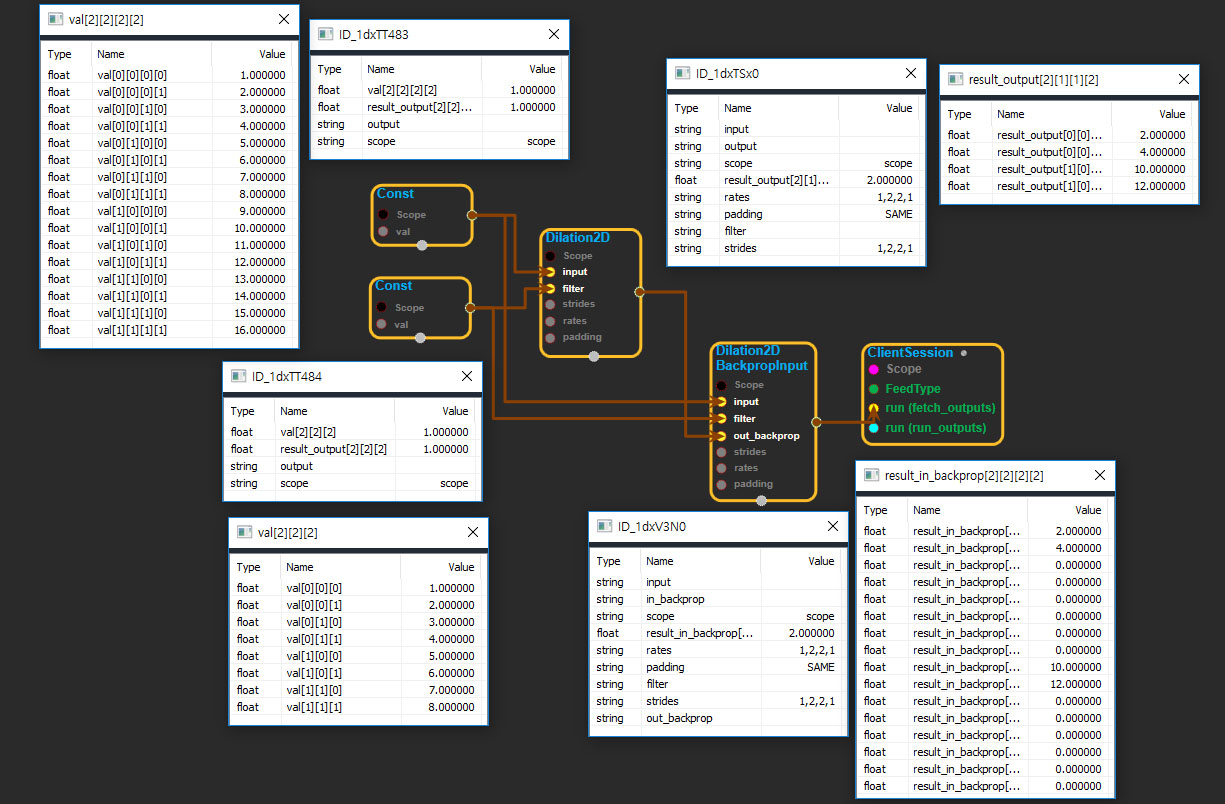Dilation2DBackpropInput
tensorflow C++ API
tensorflow::ops::Dilation2DBackpropInput
Computes the gradient of morphological 2-D dilation with respect to the input.
Summary
Arguments:
- scope: A Scope object
- input: 4-D with shape
[batch, in_height, in_width, depth]. - filter: 3-D with shape
[filter_height, filter_width, depth]. - out_backprop: 4-D with shape
[batch, out_height, out_width, depth]. - strides: 1-D of length 4. The stride of the sliding window for each dimension of the input tensor. Must be:
[1, stride_height, stride_width, 1]. - rates: 1-D of length 4. The input stride for atrous morphological dilation. Must be:
[1, rate_height, rate_width, 1]. - padding: The type of padding algorithm to use.
Returns:
Output: 4-D with shape[batch, in_height, in_width, depth].
Dilation2DBackpropInput block
Source link : https://github.com/EXPNUNI/enuSpaceTensorflow/blob/master/enuSpaceTensorflow/tf_nn.cpp

Argument:
- Scope scope : A Scope object (A scope is generated automatically each page. A scope is not connected.)
- Input input: connect Input node.
- Input filter: connect Input node.
- Input out_backprop: connect Input node.
- gtl::ArraySlice< int > strides: Input strides in value ex)1,2,2,1
- gtl::ArraySlice< int > rates: Input strides in value ex)1,2,2,1
- StringPiece padding: Input paddingin value ex)SAME
- Dilation2DBackpropInput::Attrs attrs : Input attrs in value. ex) data_format_ = NHWC;
Return:
- Output in_backprop : Output object of Dilation2DBackpropInput class object.
Result:
- std::vector(Tensor) result_in_backprop : Returned object of executed result by calling session.
